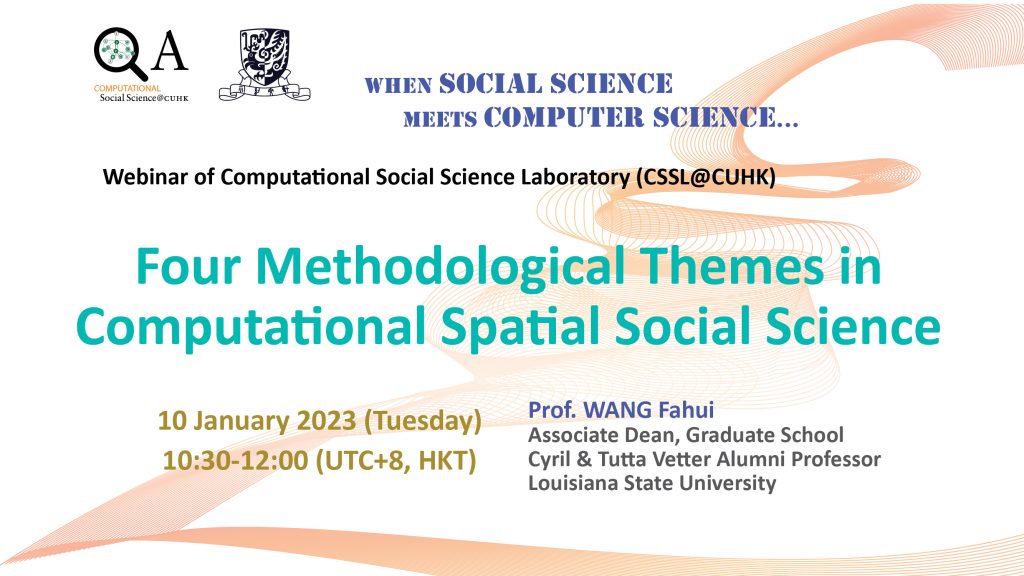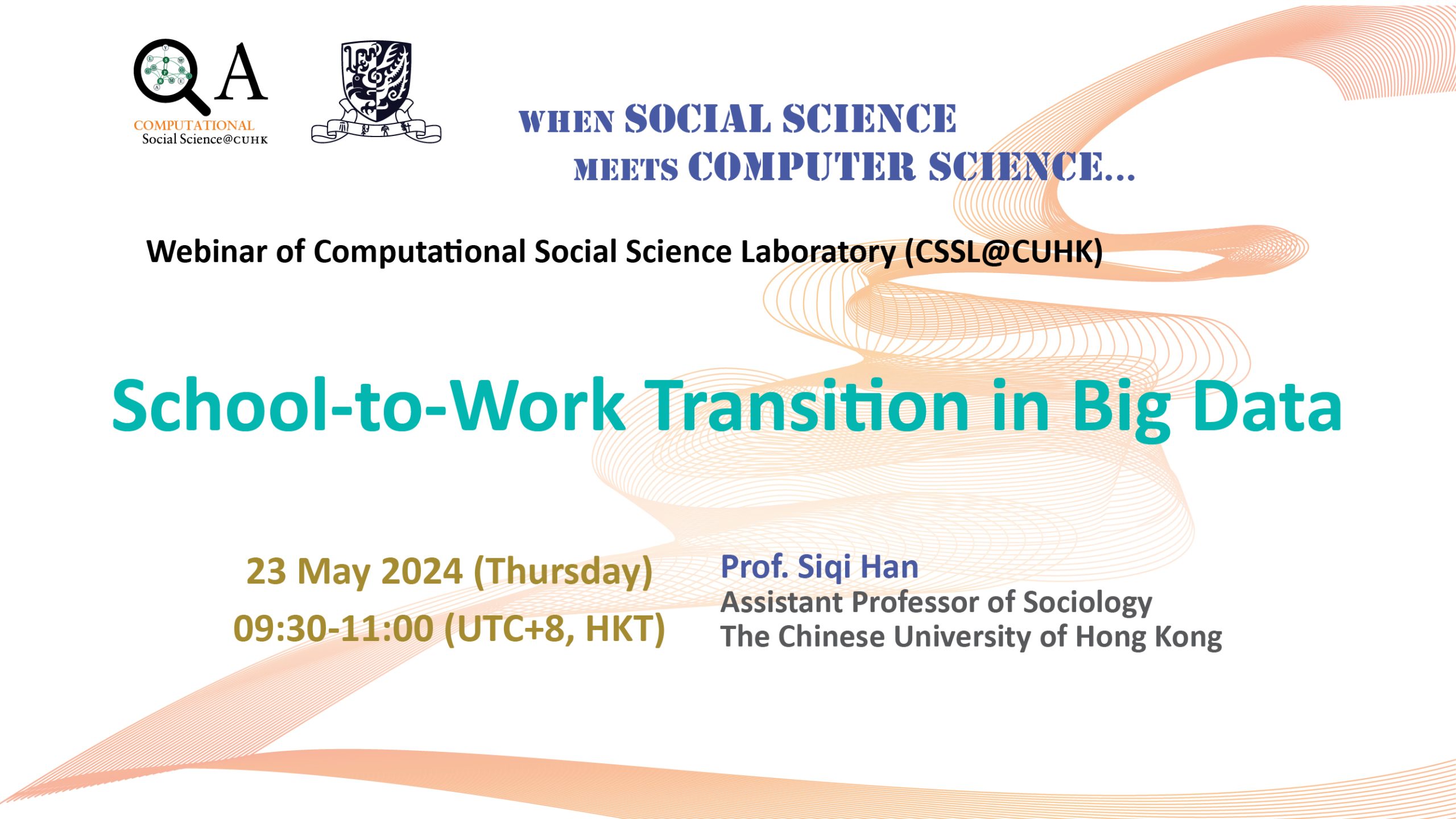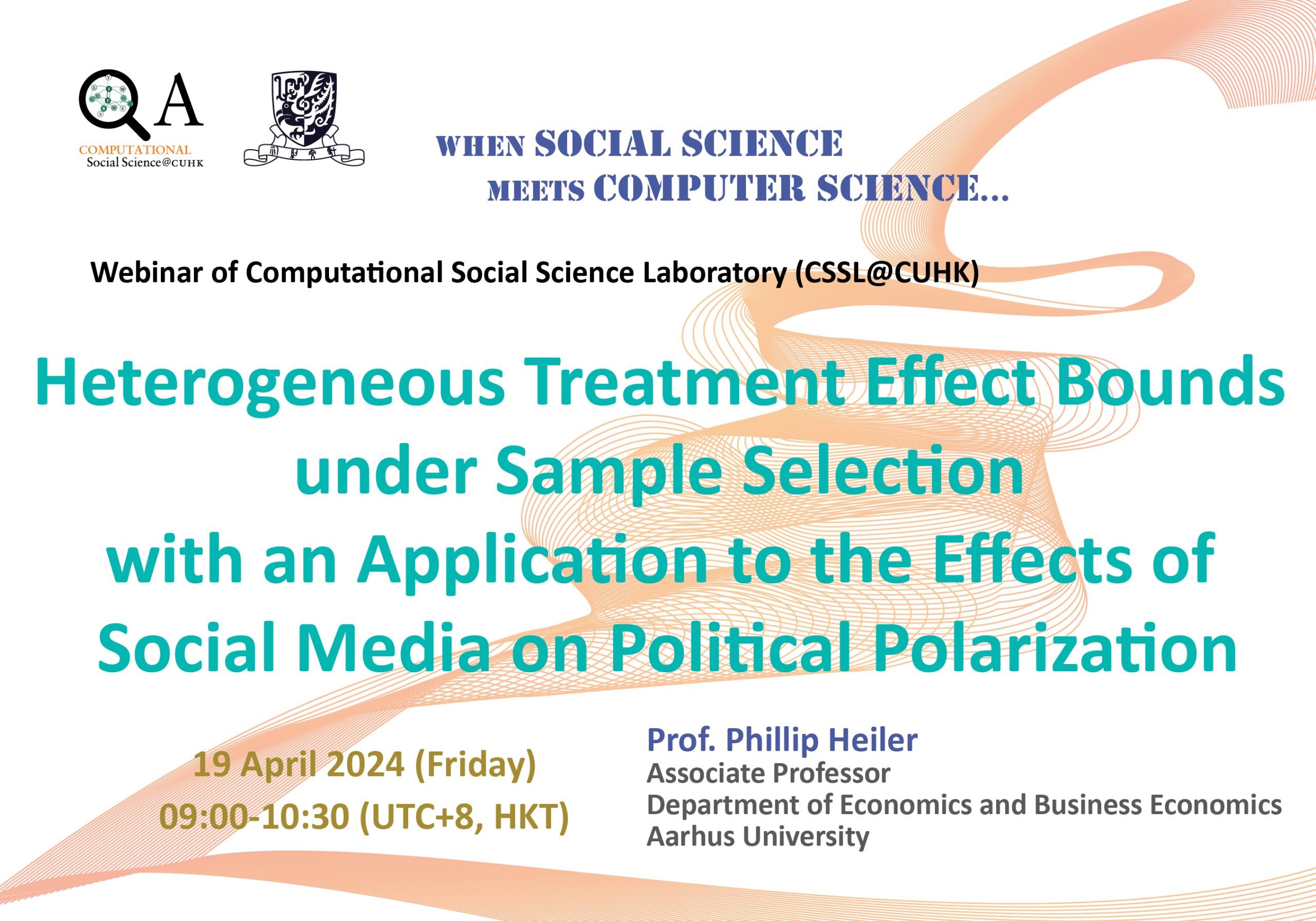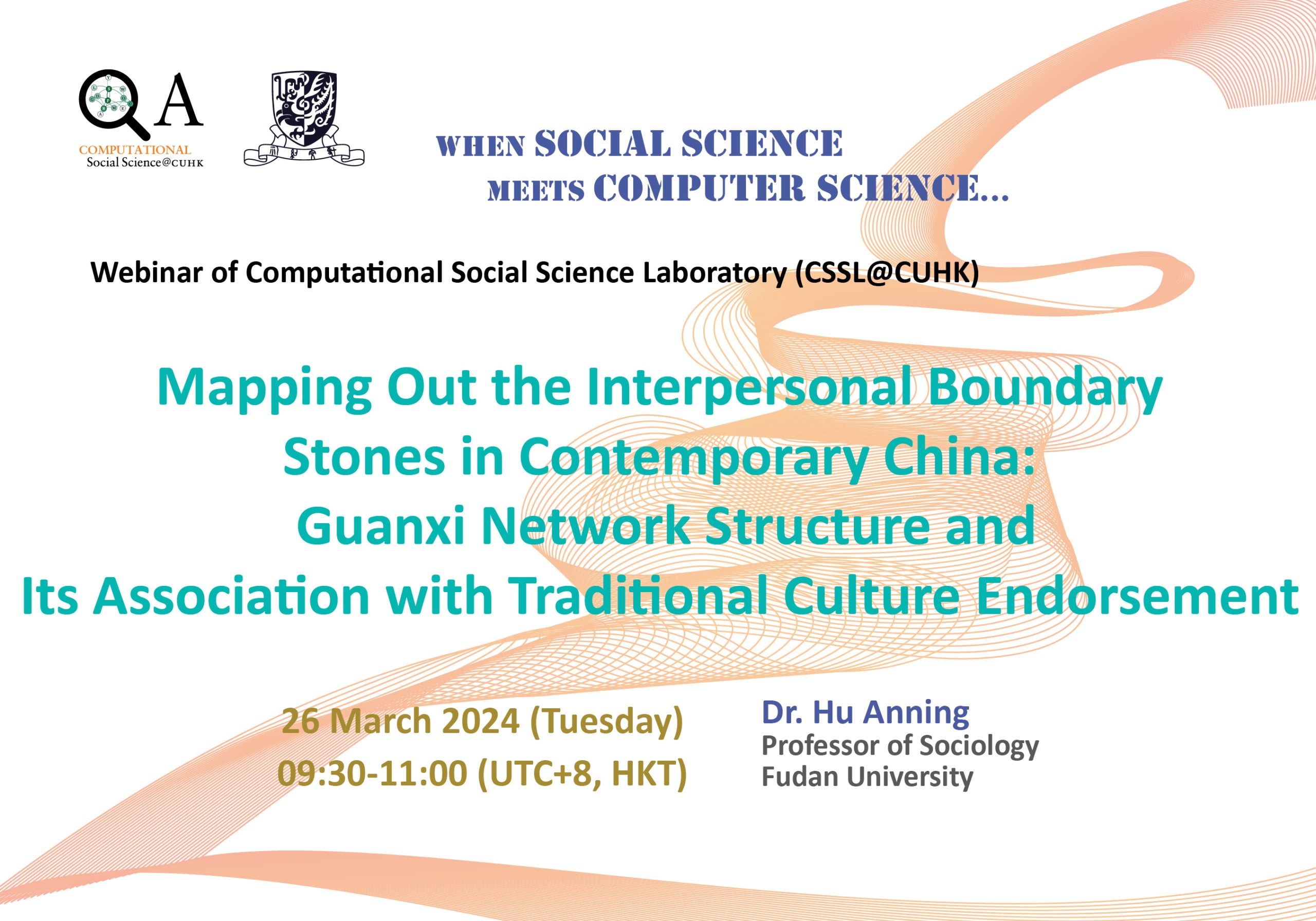

Four Methodological Themes in Computational Spatial Social Science
Abstract:
This talk outlines four methodological themes in spatial analytics with broad applications in social sciences and public policy, all grouped under the umbrella of “Computational Spatial Social Science”. Spatial accessibility measures the relative ease by which the locations of activities or services can be reached, and serves as a major matric for location advantages. Regionalization constructs regions by merging small areas that are similar in attributes or are tightly connected. The former forms homogenous regions and the latter defines functional regions. Both can be scale flexible and thus produce a series of area units to support analysis, management, and planning. Spatial simulation imitates real-world social, economic, and human environments, behaviors and interactions in a lab setting, and empowers social scientists for discovery and cost-effective policy experiments. Finally, the maximal accessibility equality problem (MAEP) is proposed as a new location-allocation paradigm in spatial optimization to plan public resources and services.
Speaker:
Prof. WANG Fahui
Associate Dean, Graduate School
Cyril & Tutta Vetter Alumni Professor
Louisiana State University



